"Don’t panic my brother, tell me, am I not your brother?"
These verses were penned by Tesfalidet Tesfom, known as Segen, an Eritrean migrant who died the day after he arrived in Pozzallo, Sicily, on March 12, 2018, following the rescue by the Spanish NGO Open Arms in the Mediterranean Sea.
His poems, discovered in his wallet, serve as a testament to his hardships and his plea for solidarity. They have since resonated with migrants seeking a better future in Europe and beyond, but not only.
On the sixth anniversary of Segen's death, a diverse group made up of friends, local authorities, volunteers, members of the Eritrean Community in Sicily, missionary priests, and the Bishop of Noto, Salvatore Rumeo, gathered at his grave in Modica's cemetery to honor him.
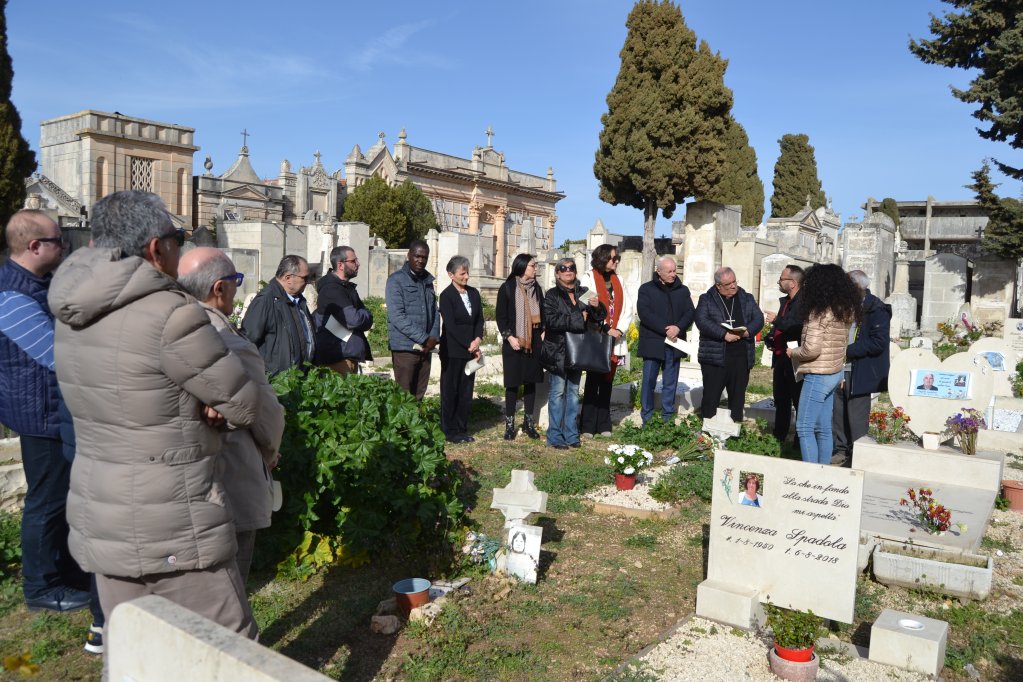
Poems a reminder of perils at sea
His poems, read aloud amidst prayers, served as a poignant reminder of the perils faced by migrants at sea. According to the IOM, more than 100 migrants have died or gone missing in the Mediterranean Sea so far this year, double that of 2023 during the same period.
The ceremony coincided with the arrival of 51 migrants, in the same place that Segen arrived six years prior, including an unidentified young body, rescued by Sea-Watch NGO. "We don’t know his name or nationality, he probably was 17," Sea-Watch said.
Segen is an Eritrean nickname, which means "ostrich" in Eritrean, a nod to the great prairies of the Mai Mine village, Segen’s hometown, which was devastated by the latest war with Ethiopia between 1998 and 2000.
Crossing Libya, Segen set off on a treacherous journey to reach Europe. He was rescued by the Spanish humanitarian ship Open Arms and arrived in Pozzallo on March 12, 2023, along with 41 other migrants. At 22 years old, he weighed only 30 kilos upon arrival.
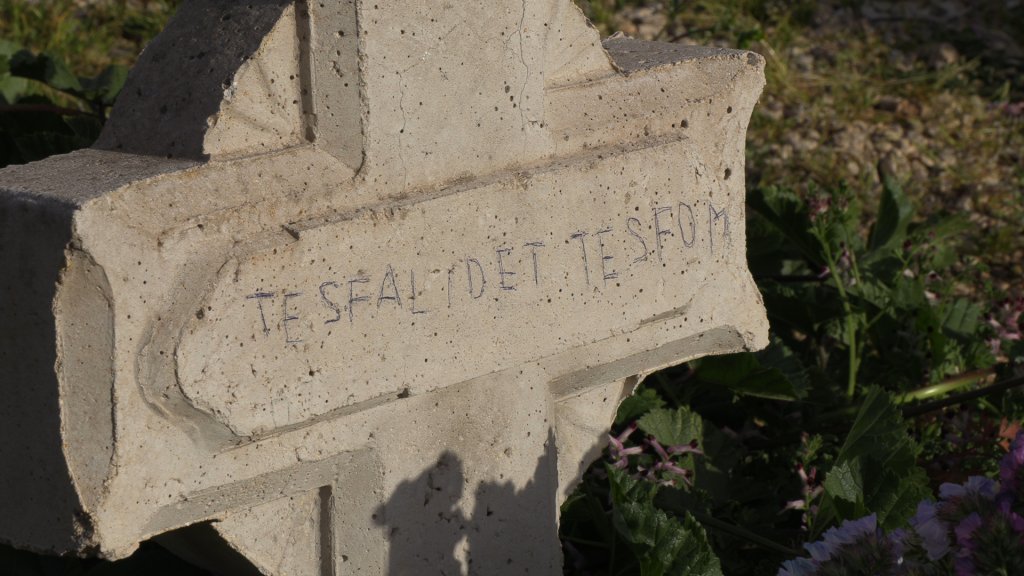
'It was Libya that killed me'
His frail appearance, with hollow cheeks and sorrowful eyes, left a lasting impression on the rescue workers who met him that day. Vincenzo Morello from the Usmaf Health Ministry, who oversaw his arrival, recalls, "I asked him why he was in such pitiful conditions, and he repeated 'Libya, Libya'." Angelo Gugliotta, another Misericordia volunteer, was also present at the ceremony.
Tesfalidet Tesfom spent a couple of months inside the Libyan detention center of Bani Walid, Merawi, a friend who traveled with him, remembered on the day of his arrival. Segen recounted to friends and Sicilian doctors who took care of him that it was Libya that had killed him. He described being crammed into rooms where guards urinated, women were sexually abused, men were beaten, and he was barely fed once or twice a day.
Tesfalidet passed away on March 13, 2018, at the Modica Hospital, just a few kilometers from Pozzallo. "He had a punctured lung and he was in an advanced stage of tuberculosis. I’ll never forget his eyes and his skinny body full of scars," says Roberto Ammatuna, the mayor of Pozzallo and former head of the Modica Hospital emergency room, who visited Tesfalidet some minutes before he died.
In an effort to identify him, Emilia Pluchinotta, who led Pozzallo's local hotspot, checked his wallet. "We found two poems written in the Tigrinya language and asked an Eritrean mediator to translate them. These poems serve as a testament to the will of migrants who perish at sea."
Also read: Eritrean recounts being repeatedly returned to Libya
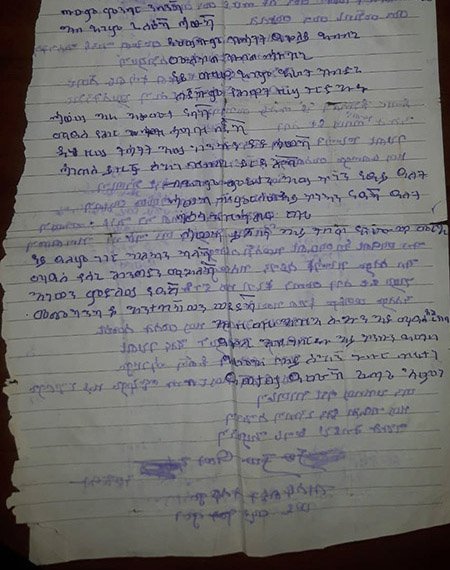
The poems, titled "Time, You Are My Master" and "Don’t Panic, My Brother," were recited by Stefania Pagliazzo, a volunteer for Mediterranean NGOs, and Irene Cerruto of local Caritas. "Don’t panic my brother/ tell me, am I not your brother?/ why don’t you ask about me?/ Is it truly so nice to live alone if you forget your brother in the moment of need?".
Father Giovanni Treglia, who officiated Segen’s funeral and now honors his memory, explains, "In these verses, we can see the request of the help of migrants who have arrived in Europe, what they spent in prisons, what they feel. It’s an unheard request of help and at the same time a message for people who are indifferent to migration."
Segen's poems, for Father Treglia, highlight the indifference of our modern world while at the same time celebrating values important for migrants as brotherhood and friendship.
Also read: From Eritrean migrant to activist, the story of Abraham Tesfai
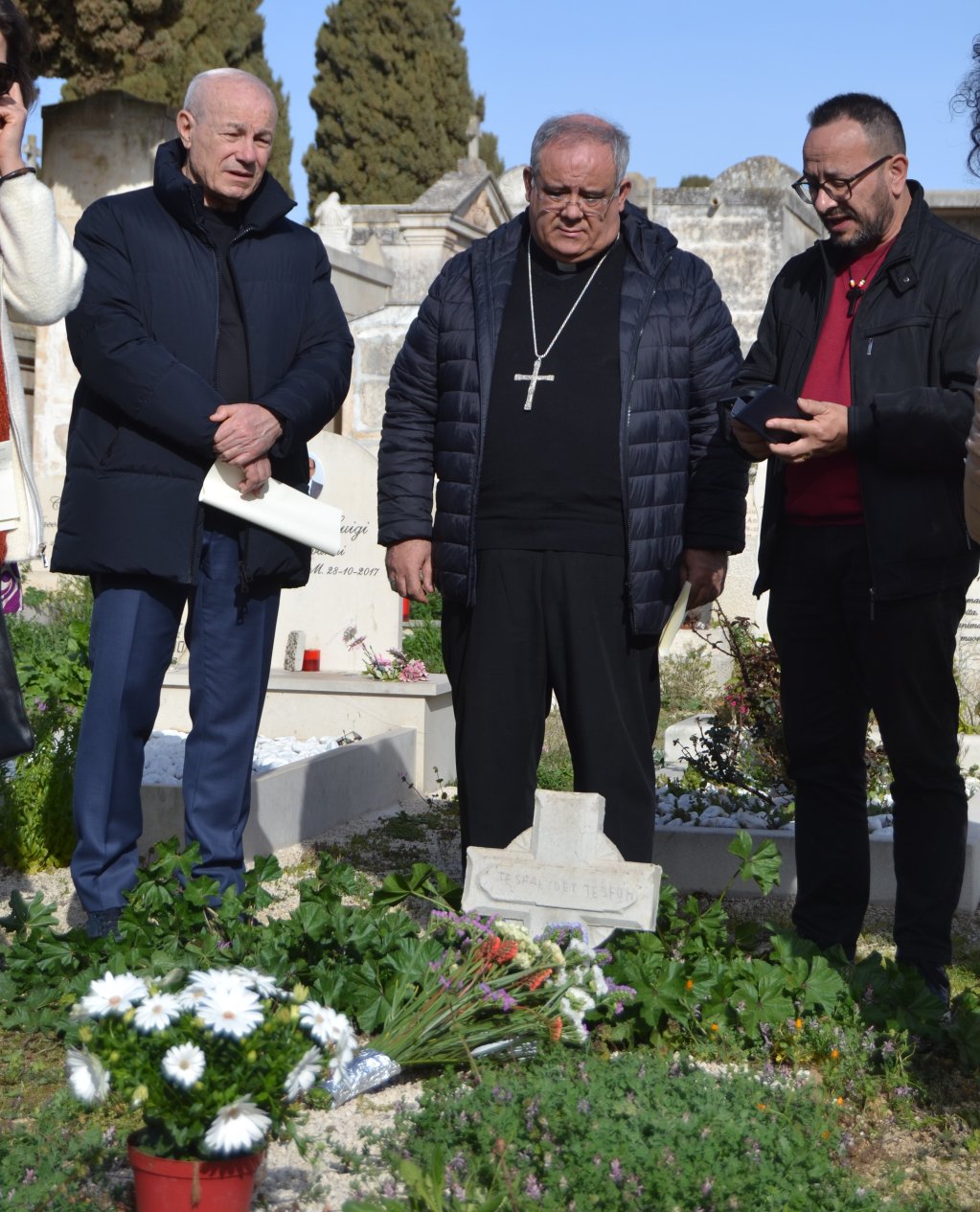
The poem "Time, You Are My Master," recalls the atrocities and injustice Segen faced in Libyan prisons, condemning those who perpetrate abuse against migrants:
"They consider themselves superior/ they pretend not to hear/ they only like appearing at the eyes of the world/ When you get closer to ask for help/ you obtained a void from them/ they can’t feel the last sorrow."
Alone, abandoned, and without help, Tesfalidet feels completely abandoned. Yet, the final lines of both poems suggest he had faith in God and that justice would come to the oppressed. In "Don’t Panic, My Brother," Tesfalidet writes, "You and I, my brother, shall emerge victorious, trusting in the Lord."
Similarly, in "Time, You Are My Master," he writes, "There is but one truth: nothing is beyond reach. Whether one has much or nothing, all can be overcome with trust in God. Farewell, victory to the oppressed." Signed by Tesfalidet Tesfom of Mai Maine.
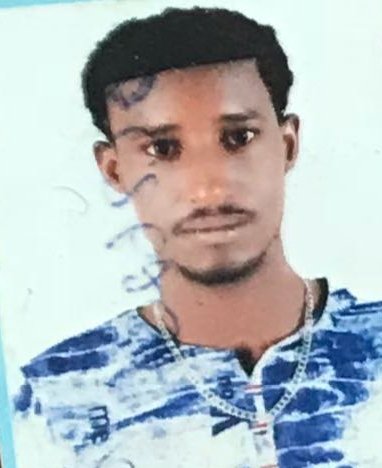
Reshaping the narrative of migration
Tesfalidet Tesfom’s poems are beginning to find their way into some Italian primary and secondary schools where they are read by students who study literature. It may be the reshaping of the narrative of the Mediterranean Sea tale. The renowned Treccani Encyclopedia includes Tesfalidet's work alongside renowned poets like Homer, Virgil, Nazim Hikmet, Costantine Cavafy, Paul Verlaine, and Eugenio Montale.
"The Mediterranean Sea was once the cradle of civilization; now, it has become a sea of death," remarks Salvatore Rumeo, Bishop of Noto. "We spent our time studying to find the deep sense of anthropology. Here it is. Segen’s poems give us the right coordinates for human anthropology. Migrants who died in the Mediterranean Sea are writing the story and not those who have the power. His poems give us the sign of our loss," concluded Rumeo.
People who participate in Segen’s memorial vow to try their best to let people around the world know about Segen’s poems. "We seek to support his family and, with the Eritrean community in Italy, locate his parents and friends. Segen’s poems resonate deeply with our nation's struggles," said Arefaine Beraky, representing the Eritrean Sicilian community.
Also read: Italy: Eritrean migrants aquitted for helping fellow migrants, 'solidarity not a crime'







